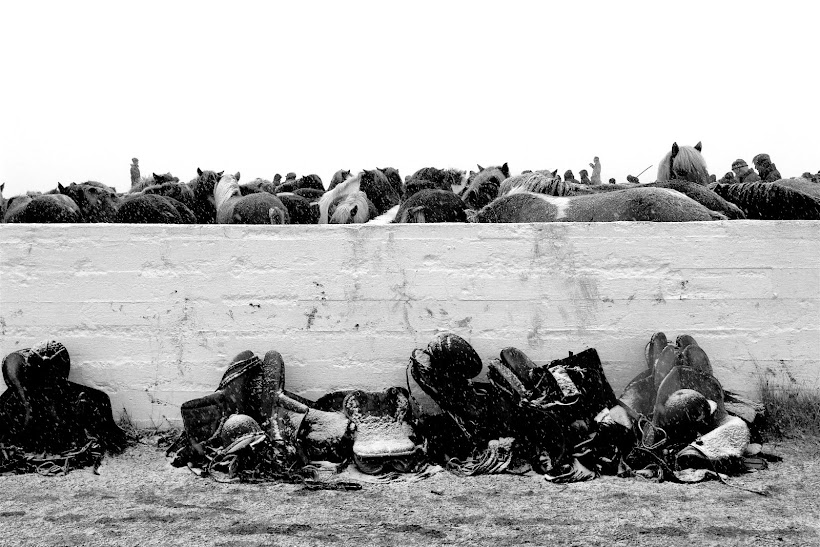Question: My horse is becoming more aggressive in his stable. When I open the door he puts his ears back and strikes out he also pins me in the corner if im not careful with his hind end threatening to kick out if I moved
His message is that his life is unfulfilled, and his behavioral needs are not being met.
For a clear appreciation of what horses expect to have re-created for them while stabled, please read my AAEP article Equine Behaviour Through Time published by Horses and People Magazine in Australia linked here.
It appears your horse is becoming behaviorally ill and dangerous. A thorough veterinary exam should rule out organic disease. It appears he has found his current stall situation unacceptable and is expressing this with gestures of aggression which will evolve to outright aggression if his situation is not improved from his behavioral need point of view. The displays of aggression are a result of unacceptable deprivations of friends, forge, and locomotion. He is unwilling to pair-bond with anyone until his life is improved and fulfilled. He has made clear that the current husbandry practices to which he is subjected are not conducive to his behavioral health. The present situation needs to be changed and improved on his behalf. The guardians must ensure that his individual needs and long-evolved behavioral requirements are fulfilled and enriched. His behavior reflects that his adaptability to be stalled has been exceeded. His message is that the stable situation is inadequate for him. It may be fine for others, but not him. First, he requires miles and miles of daily walking in addition to a daily training and riding regimen. The riding and training must be a good pleasant and deal for him. I suspect he will benefit from properly orchestrated turn-out, exercise, grazing, and significant bonding time with other horses. Most horses require a pair-bonded other horse for behavioral stability.
You will need a professional trainer to help manage his behavior while you take significant measures to improve his life by fulfilling his requirement for carefully orchestrated abundant daily socialization, foraging, and locomotion. Hours of daily grooming, hand walking, hand grazing, and hanging out together without a specific purpose other than becoming familiar with one another are in order on your part to establish a bond between you and your horse that will lead to a willing partnership. Horses who have guardians that know how to abundantly fulfill their long-evolved social needs for friends, forage, and locomotion are happy to please their guardians. It may take some time, but multiple efforts dedicated to fulfilling your horse’s essential needs of friends, forage, and locomotion will result in behavioral contentment and subsequently the development of a willing partnership. This is not about training the horse, but about abundantly fulfilling your horse’s innate survival requirements. Happy horses train up easily. Once he becomes happy and content with his new situation, his behavior will improve, as has proven out time and again with aggressive stable horses that are subsequently abundantly fulfilled with near-constant friends, forage, and locomotion. This will take time, finesse, and patience.
Sid Gustafson DVM
Equine Behavior Educator
Equine Behavior Educator
(406) 995-2266
Dr Gustafson is a practicing veterinarian, equine behavior educator, and novelist. The application of behavior science enhances optimum health, performance, soundness, contentment, and longevity in animal athletes. Behavioral and nutritional strategies enrich the lives of stabled horses. Training and husbandry from the horse's perspective result in content, cooperative horses who are willing to learn and perform.



No comments:
Post a Comment